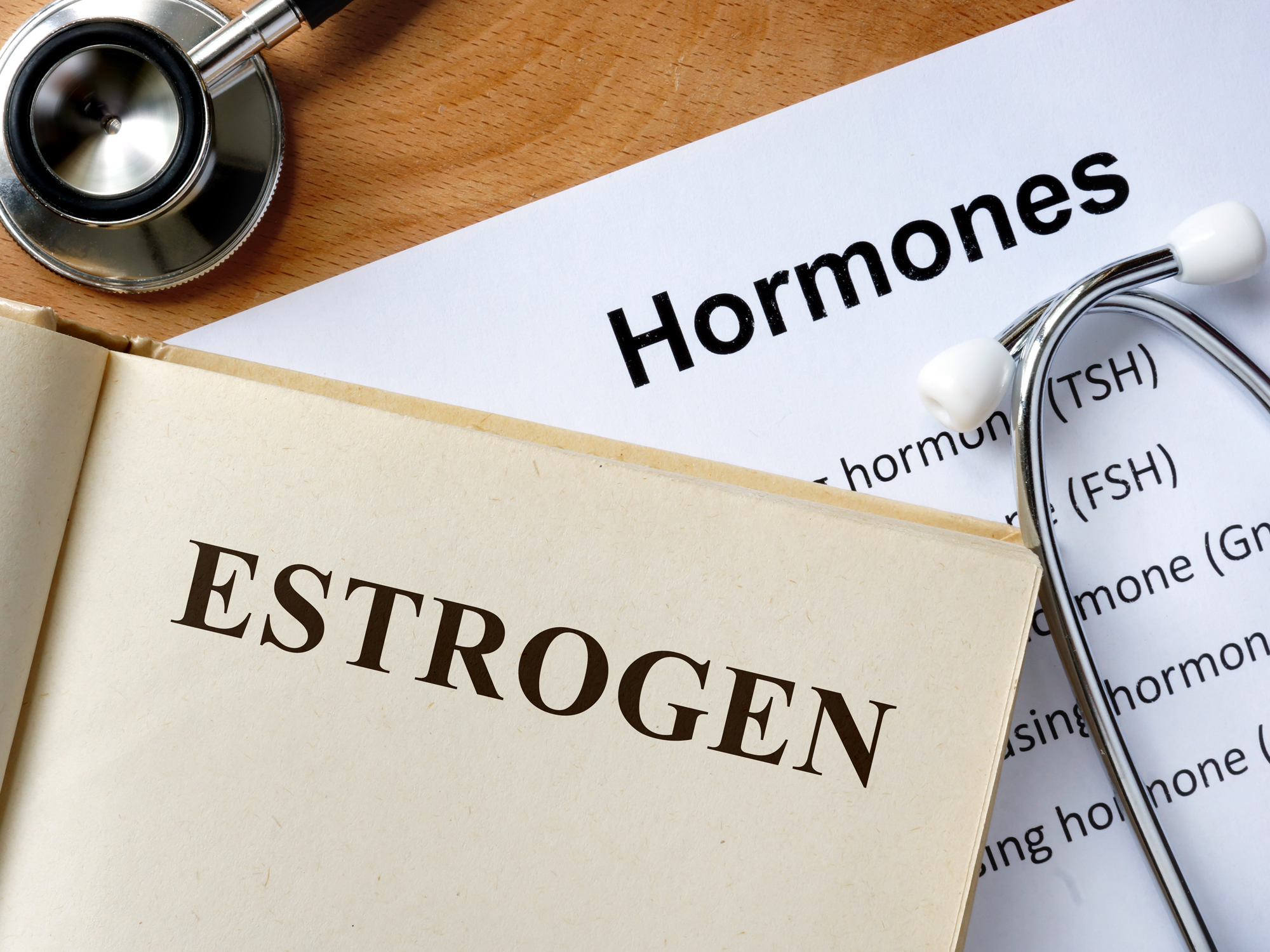Get Easy Health Digest™ in your inbox and don’t miss a thing when you subscribe today. Plus, get the free bonus report, Mother Nature’s Tips, Tricks and Remedies for Cholesterol, Blood Pressure & Blood Sugar as my way of saying welcome to the community!
The plant secret to balancing your estrogen levels

Have you put on a few extra pounds lately? Are you plagued with headaches, mood swings, bloating and even a decreased sex drive?
If any of this sounds familiar, you could be suffering from the symptoms caused by high estrogen, even if you’re in menopause.
This might surprise you since many women think of falling estrogen levels as being associated with this time of life but high estrogen can often be a part of pre-menopause as well as menopause itself.
And those hormone replacement prescriptions your doctor gives you…
Well, they’re a leading cause of high estrogen levels themselves.
But, before we get too far, don’t think that elevated estrogen is only a “female thing”.
Men can suffer with it too, leading to erectile dysfunction and even the development of breast tissue.
Luckily, there is a simple trick to lower your estrogen levels that has been proven to work time and again.
The fiber flush
It’s no secret that eating a diet high in fiber can help clean out your intestinal tract and improve your digestion.
But, did you know that it’s also the key to lowering your estrogen levels as well?
That’s right, research shows that increasing the amount of fiber in your diet can help to clear out the excess estrogen in your body, get rid of the symptoms it causes and alleviate your suffering.
Studies found that a dietary fiber intake of 30 – 40 grams per day was necessary for improvement.
This is significant since the average daily fiber intake for adults in the U.S. is only 15 grams.
No wonder so many of us suffer from digestive troubles and hormonal problems.
Your estrogen-lowering plan
So, how can you lower your estrogen levels and start feeling better again naturally?
Here’s a three-part plan to get you started.
#1 – Fiber, Fiber and More Fiber
First, start by making sure you’re eating that 30 — 40 grams of fiber per day that we talked about. Don’t be intimidated by the number. It’s easier than you think.
Just one cup of black beans contains 29 grams of fiber while a cup of raspberries provides eight grams. You get six grams of fiber from one pear and 15 grams from a cup of split peas.
Not as hard as you thought, right?
#2 – Exercise
Research shows that staying active can help lower estrogen levels so get out there and exercise. Walking, rowing, cycling, swimming, dancing and more give you the aerobic workout you need to bring your estrogen back into balance. But don’t go as hard at it as you did in your 20s. Moderate exercise presents the best results during menopause. Extreme exercise can result in a cortisol imbalance — the stress hormone that can add weight around your middle.
#3 – Optimize Your Weight
Excess body weight is linked to high estrogen levels. Losing those extra pounds can help you lower your estrogen and finally feel better.
High estrogen levels can lead to a host of problems like fatigue, memory loss, headaches and sexual dysfunction. But, if you take the three steps above, you don’t have to suffer. You can lower you estrogen levels naturally and get your health back.
Sources:
-
Dietary fiber intake and endogenous serum hormone levels in naturally postmenopausal Mexican American women: the Multiethnic Cohort Study — Nutrition and Cancer
-
The effect of dietary fat and fiber on serum estrogen concentrations in premenopausal women under controlled dietary conditions — Cancer
-
Increasing Fiber Intake — University of California San Francisco Medical Center
-
National Nutrient Database for Standard Reference Release 28 — United States Department of Agriculture
-
Exercise lowers estrogen and progesterone levels in premenopausal women at high risk of breast cancer — Journal of Applied Physiology
-
Hormone Levels Drop When Obese Women Lose Weight — Breastcancer.org












